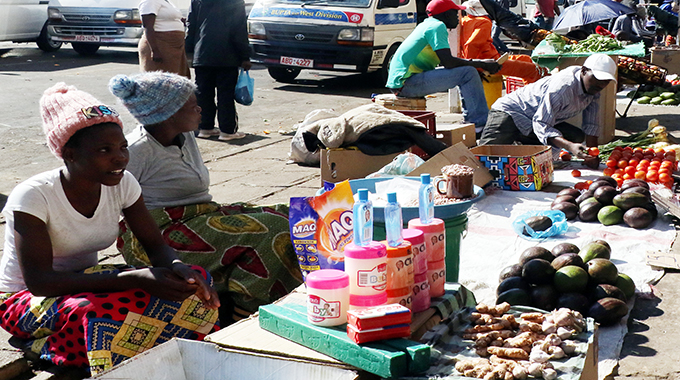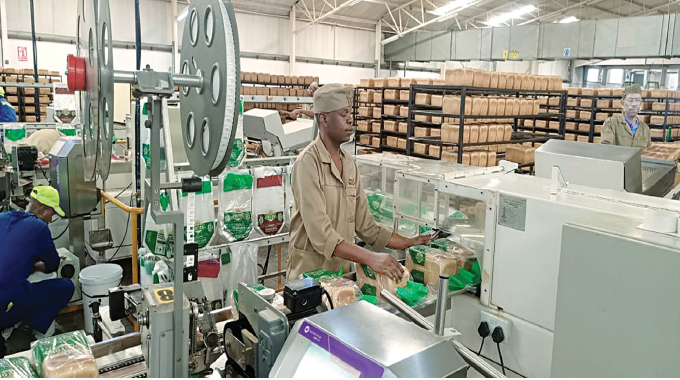‘Wanton price hikes impoverishing consumers’

Natasha Chamba/Leonard Ncube, Business Reporters
BUSINESSES should embrace ethics and desist from wanton price increases that have been blamed for impoverishing a majority of consumers.
Economists and the Consumer Council of Zimbabwe (CCZ) have expressed concern over recent price increases on various basic commodities countrywide and called for speedy enactment of the Consumer Protection Act, to effectively address the plight of consumers.
A Bill is being worked on and if approved, the law will result in the establishment of a Consumer Court and a Consumer Protection Commission, which have been on the cards for years.
“The Consumer Protection Act will be a game changer as it will bring order to the market and protect consumers by enhancing customer care. For now it is at Bill stage and will go to Parliament and we expect it by mid next year,” said CCZ executive director Mrs Rosemary Siyachitema.
“In terms of the prices, yes we need to cultivate a positive image but what’s happening in the pricing system is phenomenal. People are being impoverished. The state should ensure that our people are surviving and look at how we mitigate this.”
She was speaking at an educational and awareness campaign meeting organized by CCZ and Zimbabwe Energy Regulatory Authority (Zera) in Victoria Falls to conscientise consumers about their rights.
“We have been making suggestions since 2006 and we will still continue saying when we increase prices let’s look at salaries. Currently the food basket for an average family of six needs between $600 and $700 per month and most families are living from hand to mouth.
“We are jointly hosting these awareness campaigns with Zera because we both have consumers at heart. The aim is for people to be energy smart as well as protect themselves,” said Mrs Siyachitema.
Speaking at a business dialogue focused on economic opportunities in Bulawayo and Matabeleland last week, economists also accused businesses of seeking to maximise profits through price increases instead of striving on competitiveness and quality service.
Businessman and former Competition and Tariff Commission chairman, Mr Dumisani Sibanda, said the economy had become inefficient in terms of pricing.
“We have a very sad predicament that we are currently facing whereby our country’s economy has become inefficient in-terms of pricing,” he said.
“The economy has been eroded to the grassroots that we have also devalued a strong currency like the USD.”
National University of Science and Technology researcher, Dr Nqobizitha Dube, urged the Government to protect consumers by coming up with policies that keep retailers in check to stabilise prices.
“Retailers are over-pricing consumers at extortionate and unrealistic prices and blame the Government from there, which is very wrong,” he said.
“What now needs to be done to help normalise the situation is for Government to draft policies like the minimum wage policy and consequently Government price controls.
“The minimum wage policy will set laws for the lowest hourly rate an employer can pay certain workers and the economy will be bent on responding to this.”
Basic commodity prices have shot up by over 50 to 100 percent in recent months. For example, a two litre bottle of cooking oil is being sold for an average of $10 from $3,85, rice and other commodities following suit. Mr Sibanda said the price increases have eroded salaries by over 300 percent.
Economists regard pricing generally as a key business component, which has the power to attract or repel investors in an economy.
“We are saying we are open for business and we want to create an environment, which is conducive for doing business but it is the little components that attract or repel investments,” Mr Sibanda added.
“The increases in prices are painting a very bad picture and our pricing models are failing the economy entirely.”
Meanwhile, MoB Capital Private Limited managing director Mr Morris Mpala said the Government should be careful and monitor the inter-bank system so that it does not turn into a command market.
“The inter-bank has potential of creating a command market, which will create more buyers and fewer sellers,” he said.
“Government should be wary that money will be taken from the bank and sold on the parallel market creating larger problems because what we need right now is for the precious foreign currency to flow in the formal and conventional channels.”
Mr Mpala also said Government should work on earning the people’s trust so that diaspora remittances can be channeled into the formal sector to assist the economy.











Comments